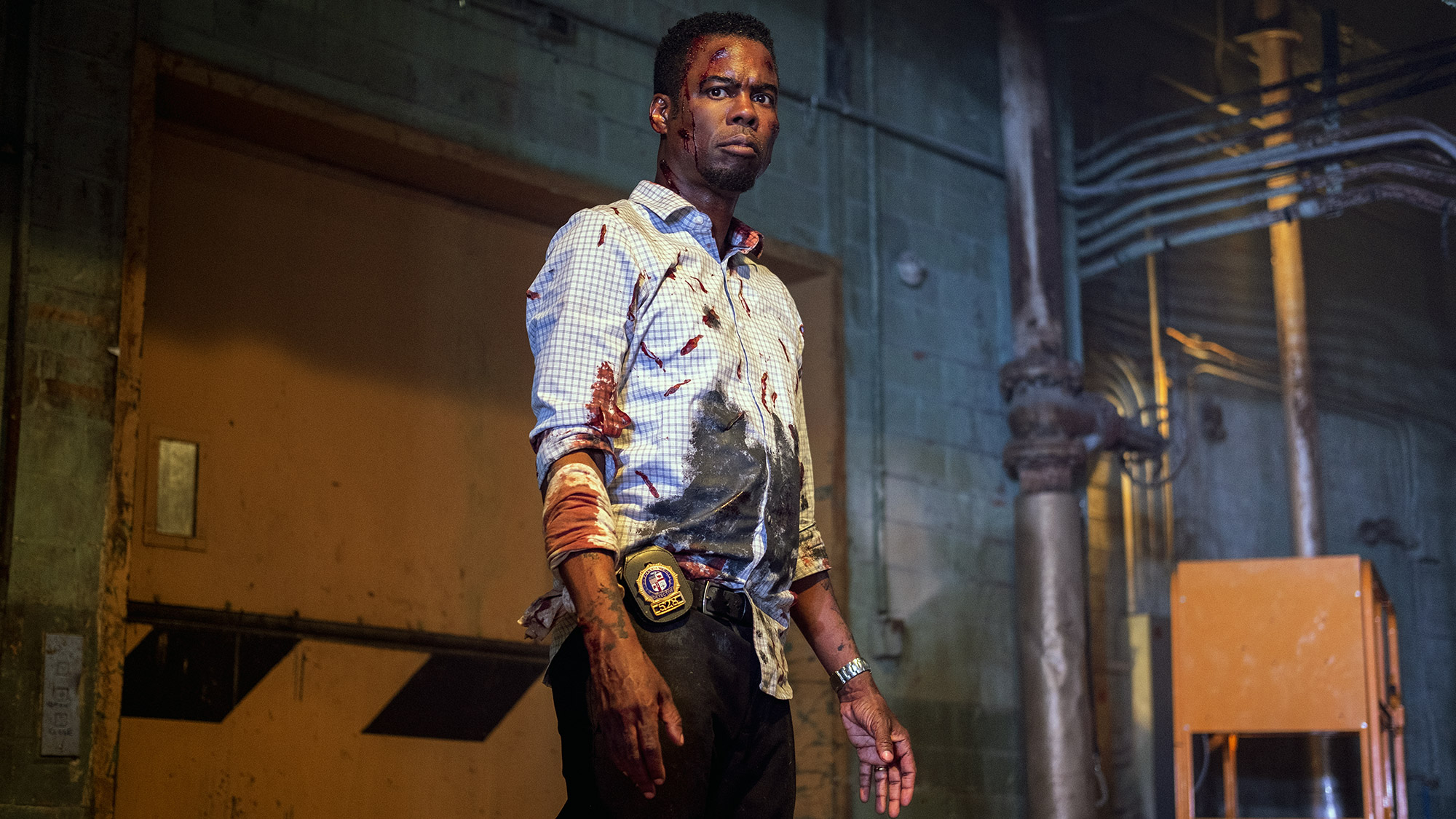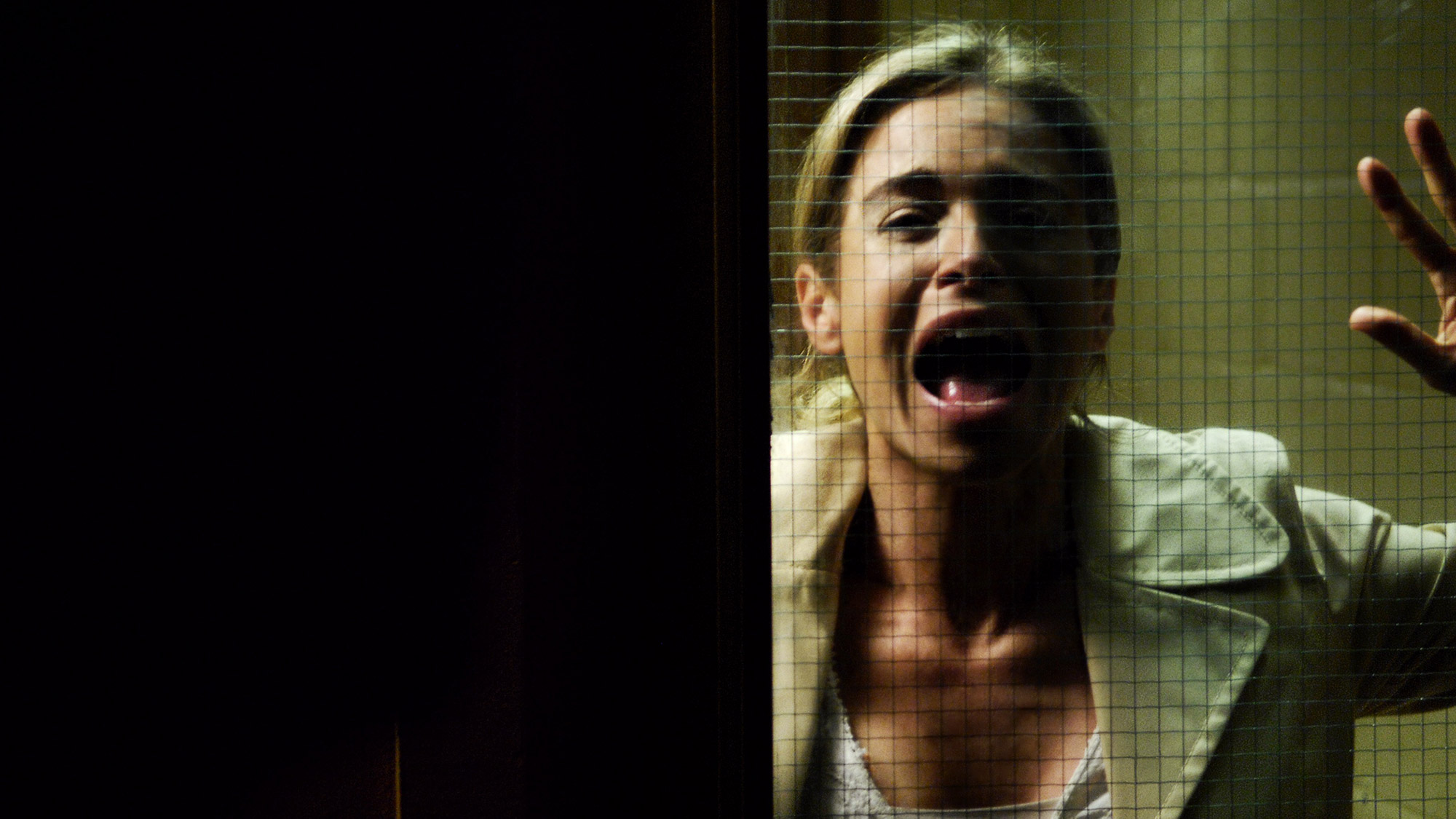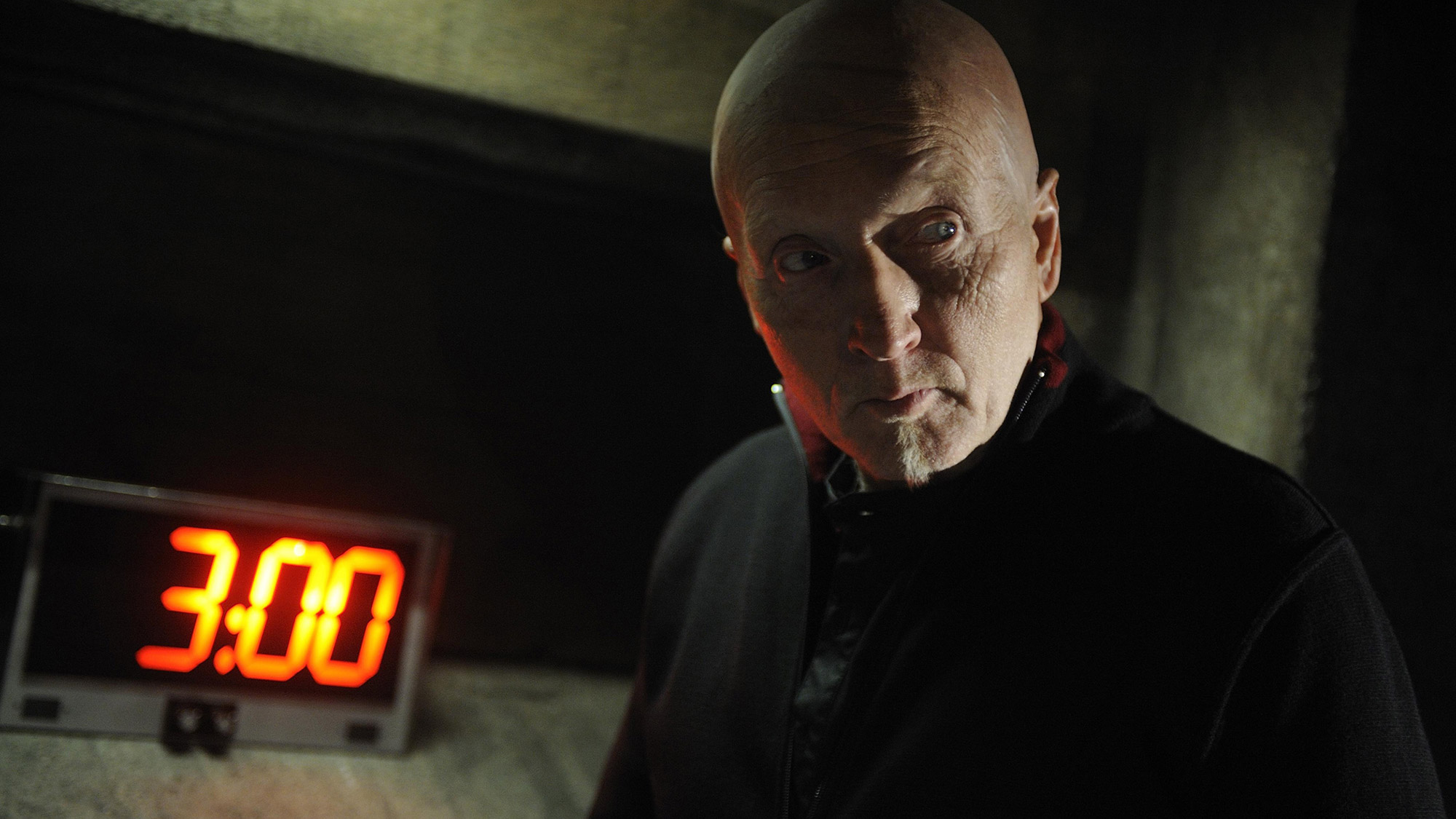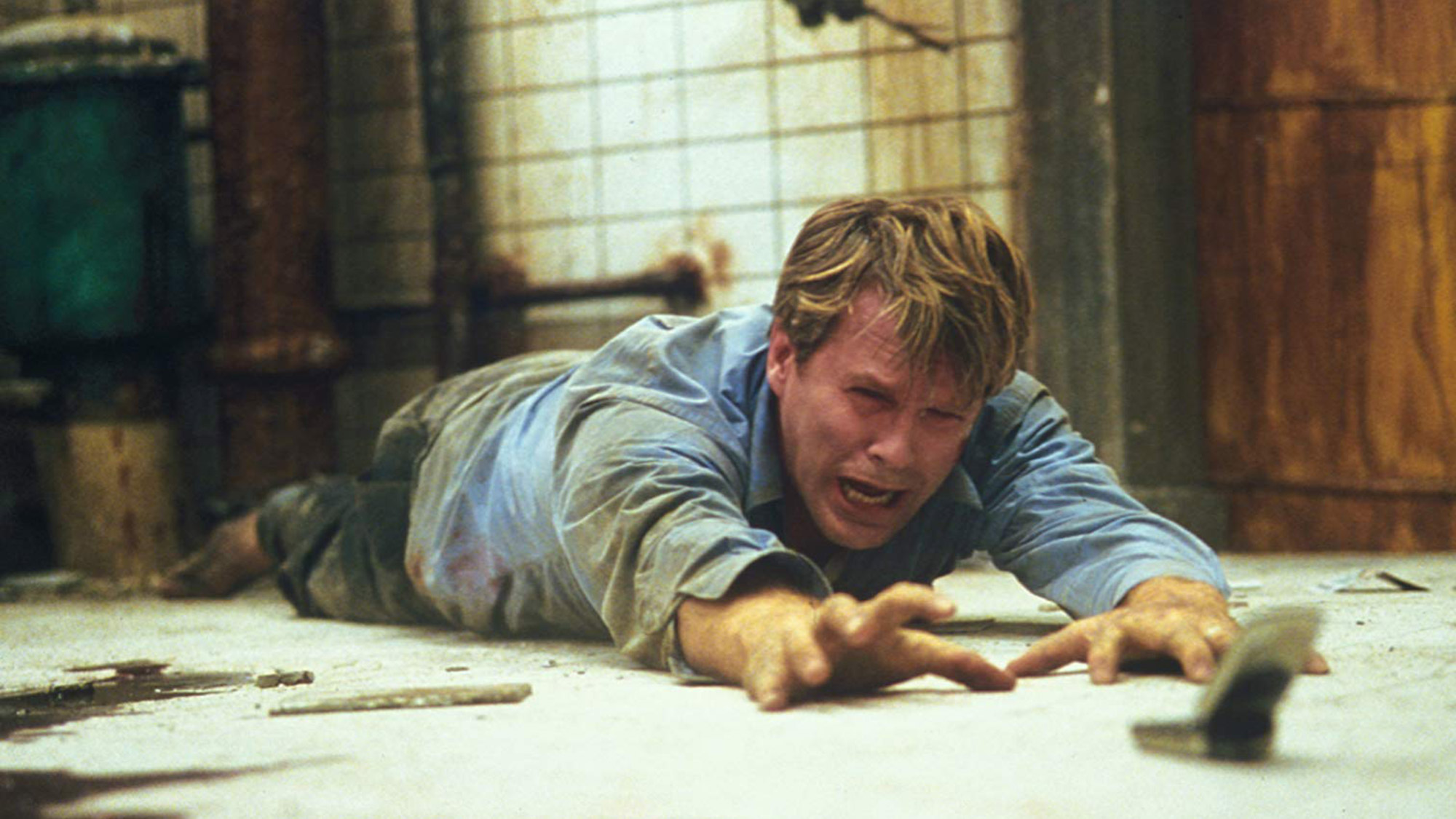All 8 Saw movies, in order of worst to best

Do you want to play another game?
If you’re a fan of the Saw franchise — in all its campy, torture-porn glory — you won’t have to wait much longer to experience all-new death traps, deliciously convoluted plots and questionable senses of morality.
- We've got the best horror movies on Netflix
That's because the upcoming ninth installment in the franchise, Spiral: From the Book of Saw, chain-saws its way into theaters May 15.
Director Darren Lynn Bousman (Saw II, II and IV) returns to direct this newest film, written by Josh Stolberg and Pete Goldfinger (Jigsaw), based on a story by Chris Rock, who also stars in the film as Det. Zeke Banks. While the film isn’t a reboot, it’s unclear if it’ll be a prequel, sequel or midquel, as many of the films’ biggest twists involve playing with chronology. After watching the above trailer for Spiral, we got so excited for this gritty new chapter that we decided to revisit the first eight films and rank all the Saw movies in order from worst to best based on a very scientific formula based on gross-out factor, camp level and element of surprise.
So, are you ready to play?
Saw IV

Saw IV opens with the gruesome autopsy of John Kramer (Tobin Bell) that makes even the autopsy from The Autopsy of Jane Doe, a movie ALL ABOUT AN AUTOPSY, look tame in comparison — and it doesn’t let up from there. The makers of Saw have pooh-poohed the idea that the series is “torture porn,” but their case falls apart faster than a laser-sliced head (see: Jigsaw) with this movie. A torn-off scalp? Check. People impaled by spikes? Uh-huh. A head crushed between two massive blocks of ice? You know it. Sure, every Saw movie is gory to some extent, but the lack of substance and the nonsensicality in IV make those gory bits the only semi-interesting parts.
For most of the movie, we follow Officer Rigg (Lyriq Bent), introduced in Saw II, as he has to navigate his own Jigsaw game. Turns out he...cares too much...about saving people…? Meanwhile, the police start to believe Jigsaw had another accomplice and turn their sights to Rigg (again, the guy who tries to save everyone all the time and is getting punished for it). Really, it’s Det. Mark Hoffman (Costas Mandylor), the brooding caricature of a cop, who’s been helping Jigsaw this whole time. Oh, and also, this whole thing has been taking place before Saw III, and that autopsy at the beginning was just a fake-out. That happens much later — surprise! It’s the cheapest trick the series pulls (which is saying something), and the movie serves only to establish Hoffman as the new Big Bad.
Get instant access to breaking news, the hottest reviews, great deals and helpful tips.
Rating: 2 ice blocks out of 10
Saw 3D
Saw 3D (aka Saw: The Final Chapter) isn’t the newest film in the Book of Saw, but it feels like the ending of the main story. Sadly, it’s also one of the messiest entries. The opening scene mixes things up a bit with a game set in a glass box in the middle of a busy city square, which is kinda fun if you don’t think about the logistics too much, but the rest of the movie tries way too hard to wrap up the overarching story to be enjoyable.
While the twist of the original Saw’s Lawrence Gordon (Cary Elwes) being alive and Jigsaw’s accomplice is an admirably cyclical way to “finish” the John Kramer story, the amount of exposition and suspension of disbelief needed to pull it off just isn’t worth it. Aside from a dialogueless Chester Bennington cameo, the only other moment that really stands out is when new villain Hoffman hunts down old villain Jigsaw’s ex-wife, Jill Tuck (Betsy Russell), in an ’80s-style chase that’s one of the campiest scenes in all of Saw. Then, suddenly, Jill’s in the classic bear trap (from which both Amanda Young and Hoffman escaped), but this time it finally goes off, making for one of the grislier Saw deaths. It’s understandable why there wasn’t another Saw film for seven years after this prime example of diminishing returns.
Rating: 3 Billy the Puppets out of 10
Jigsaw
As noted above, seven years passed between Saw 3D and the newest Saw movie, Jigsaw, leaving plenty of time for the writers to develop something new and exciting that would reinvigorate the franchise. But what we got was a campy and mostly unnecessary continuation of John Kramer’s story that picks up ten years after the other films. We meet a few new characters — detectives Hunt (Clé Bennett) and Halloran (Callum Keith Rennie); Army vet turned medical examiner Logan Nelson (Matt Passmore); and Logan’s assistant, Eleanor Bonneville (Hannah Emily Anderson), a Jigsaw superfan who has even re-created some of Jigsaw’s traps — who admittedly breathe some new life into the story.
In fact, the best part of the movie is trying to uncover who the new Jigsaw is; there are red herrings aplenty to make the mystery more exciting. But when it’s revealed that Logan is the killer and yet another Jigsaw victim turned Jigsaw apprentice, it’s like the writers hadn’t learned anything from fans’ previous complaints. Sure, Jigsaw groupie Eleanor would have been way too obvious, but screw the twist — how cool would that have been? A new copycat killer who just appreciates the art of Jigsaw’s kills rather than someone directly connected to the man John Kramer. But nope, instead we get a guy who mixed up some X-rays more than a decade ago, ended up in one of Jigsaw’s traps, survived (thanks to Jigsaw himself) and decided, sure, “serial killer” will look good next to “doctor” and “veteran” on my résumé. Crossing my fingers Spiral will be the Saw revival we actually wanted.
Rating: 5 laser collars out of 10
Saw VI
Saw VI — or, as I like to call it, Saw Gets Political — changes the game by actually having something semi-meaningful to say. In this one, shady money lenders and insurance executives are tested by new Jigsaw heir Hoffman. The moral quandaries become a little more complex than usual in this one, as our own political leanings are challenged, and the setup of the game is reminiscent of Saw II in that we spend more time getting to know the victims and their stories. Unfortunately, the rest of the film is bogged down by too much exposition, the boring and not very menacing Hoffman as the main villain and so many surprise Jigsaw envelopes detailing his posthumous plans that it fails to capture the inventiveness and tension of the first few movies.
Rating: 6 spins around the death carousel out of 10
Saw V

Despite having some of the worst reviews of any Saw movie, Saw V has a good-cop-versus-bad-cop, cat-and-mouse story I find really fun. FBI Agent Peter Strahm (Scott Patterson) is back after being introduced in Saw IV, and he proves to be a formidable opponent to Hoffman, escaping a water death trap by performing a self-tracheotomy with a pen. And even with Strahm’s ridiculous Bane-esque voice post-tracheotomy, it’s nice to have someone to root for in this series again. Meanwhile, there’s a separate group of victims enduring a multi-room game while trying to figure out how they’re all connected à la Saw II (though these characters are far less memorable). This B plot gives the film some necessary momentum between scenes that delve into Hoffman’s very generic backstory.
The film’s climax is the pièce de résistance, though. As Strahm closes in on Hoffman, he has a final game to play: Enter the glass box in front of him, a Hoffman-created recording tells him, if he wants to survive. But stubborn Strahm doesn’t listen and pushes Hoffman inside instead. Strahm thinks he’s won, but then the room starts to close in on him as Hoffman lies safe and sound in the box below. Strahm’s bones start to break and his body is crushed as blood splatters onto the glass box, where a smiling Hoffman watches, victorious. Our boy Strahm, one of the few likeable characters in Saw, was *THIS CLOSE* to getting Hoffman. But alas, there was more money to be made.
Rating: 7 pens in the throat out of 10
Saw II
It’s impossible to talk about Saw II without immediately mentioning the used-needle trap. In fact, it might be the only trap a casual fan of the series remembers past the original Saw. And that’s because it’s such a terrifyingly visceral trap that it doesn’t need to rely on visual shock to get under your skin. Whether you’re afraid of needles or not, we can all pretty much imagine how jumping into a pit of them must feel. (Not great.)
The other reason this film works so well? The maze of increasingly dire games that lays the groundwork for most of the follow-up films as well as the mystery of how the many victims are connected. At this point in the franchise, character work is given as much time as the blood and gore, so there’s a personal investment in the victims’ fates. The standout character here is Jigsaw’s sole surviving victim, Amanda Young (Shawnee Smith), who finds herself in yet another game after narrowly escaping the last. She’s able to help guide the other victims, which creates a fun dynamic between them, and when it’s revealed that she’s secretly been working WITH Jigsaw the whole time? It’s damn near triumphant.
Rating: 8 used needles out of 10
Saw III
Choosing between Saw II and III for second place was definitely the most difficult decision of this list. Honestly, I wanted to present them here as a pair, but that would have been a cop-out (and my editor said no). So, yes, somewhat controversially, I decided III has the slight edge. Why? Well, for starters, it features my second-favorite twist in the series. Throughout the movie, we follow two victims: Jeff (Angus Macfadyen), whose son was killed by a drunk driver, and Lynn (Bahar Soomekh), a doctor who must keep John alive or risk a bomb collar around her neck blowing up and exploding her head. The twist is that Jeff and Lynn are married, and when Jeff finally reaches the end of his test, he enters the room where Lynn, Amanda and John have been.
In a Reservoir Dogs–esque standoff, Jeff enters the room at the exact moment Amanda shoots Lynn. He then shoots Amanda out of rage — but wait! There’s more! — and John reveals another surprise: This test was Amanda’s all along. She wasn’t a worthy successor to his legacy, because she created unwinnable games for her victims. After Amanda dies (RIP, kween), Jeff is offered one final chance to quell his rage: He can forgive John and let John live, in turn potentially saving his wife’s life. But, no, poor Jeff hasn’t learned a single thing from his game, so he slits John’s throat with what else but a buzzsaw, sealing all of their fates.
Beyond just this ridiculous surprising series of events, Saw III also features a slowly filling vat of liquefied pig corpses and, my personal favorite trap, the medieval Rack torture device, which slowly twists a victim’s arms, legs and neck 360 degrees. Simple but oh so gruesomely effective.
Rating: 8 rotted pig corpses out of 10
Saw

As Neve Campbell triumphantly declares in Scream 4, “Don’t fuck with the original!” There’s a reason why eight more films were produced in this franchise, and that reason is the OG Saw (and, well, of course, $$$). It’s the only Saw that’s scary in the traditional horror movie sense (remember when Adam’s camera flash illuminated a pig mask–wearing Amanda right before he was captured?) and has one of the best twists in horror cinema — nay, cinema, period — history (that DEAD GUY is really ALIVE, and he’s JIGSAW?!). While the movie’s hacksaw climax seems like child’s play compared to the later films’ increasingly more elaborate traps, the grit and direness of the characters’ situation really sells it. There’s a simplicity in this game of survival that makes us invested in the characters right away, whereas the subsequent films are bogged down by too much exposition and retconning to make the characters much more than meat puppets. It also paved the way for more daring horror movies to exist, for better (The Descent) or worse (The Human Centipede). And how can we not stan a film that grossed nearly $99 million more worldwide than its budget cost? Here’s to hoping that Spiral will offer a similar new excitement and reinvigorate this franchise when it premieres May 15.
Rating: 10 severed limbs out of 10
- Best horror movies on Netflix 2020
- 8 streaming services you’re not watching (but should be)
- New on Netflix 2020: Movies, TV shows and originals
Daniel Toy is a Tom's Guide contributing writer who covers television, film and all things pop culture. When he's not arguing about the best and worst series finales of all time, he's flipping through his LCBS's dollar bin or chugging through his Switch backlog. His other writing and editing credits include BuzzFeed, Marvel, Scholastic, Callisto, Breadcrumbs and Syndicated, and he strongly believes The Truth Is, indeed, Out There.
